Space
Sign up for our newsletter
We summarize the week's scientific breakthroughs every Thursday.
-
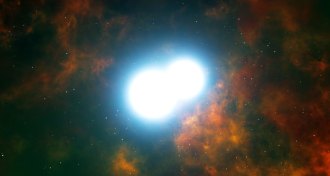 Astronomy
AstronomyWhite dwarf pair will trigger a supernova — in 700 million years
Astronomers found two white dwarfs with enough mass to explode as a supernova.
-
 Astronomy
AstronomyFirst stars born later than thought
New results from the Planck mission indicate that the first stars began to shine 550 million years after the Big Bang.
-
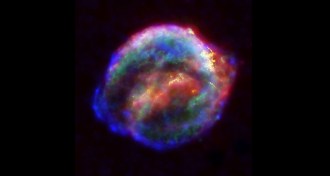 Astronomy
AstronomyAsteroids or planets might trigger a supernova
Rocky debris falling onto a white dwarf might trigger some supernovas.
-
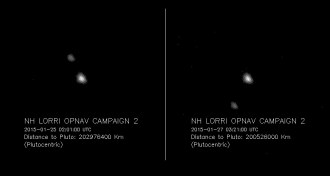 Planetary Science
Planetary ScienceNew Horizons snaps new photos of Pluto
Pluto and its moon Charon appear as two smudges in the first pictures taken since New Horizons came out of hibernation.
-
 Physics
PhysicsWhen entering a black hole, fasten your seat belt
Rapidly spinning black holes can generate turbulence, a new analysis shows.
By Andrew Grant -
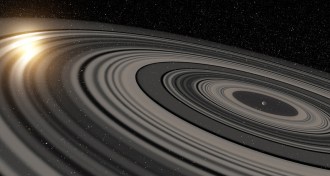 Astronomy
AstronomyGiant rings encircle young exoplanet
Stretching 90 million kilometers from their center, 37 stripes of dust around exoplanet were probably crafted by moons.
-
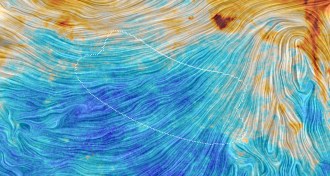 Cosmology
CosmologyDust erases evidence for gravity wave detection
The claimed detection of primordial gravitational waves does not hold up after taking into account galactic dust, a new analysis concludes.
By Andrew Grant -
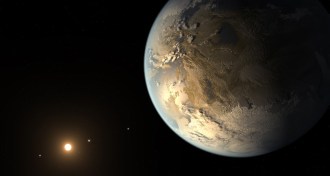 Astronomy
AstronomyNeptune-like worlds could become habitable
Mini-Neptunes can drift toward their stars and lose their atmospheres, leaving behind ice-rich rocky cores that can become watery worlds.
-
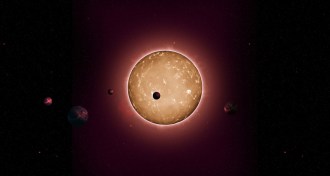 Astronomy
AstronomyOldest solar system unearthed by Kepler
Five rocky planets orbit the 11.2-billion-year-old star Kepler 444, suggesting that Earth-sized worlds formed in the early universe.
-
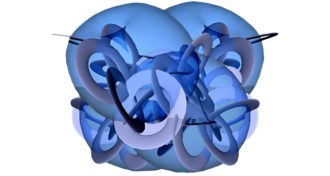 Quantum Physics
Quantum PhysicsTop 10 scientific mysteries for the 21st century
Solving the Top 10 scientific mysteries facing the 21st century will not be all fun but could be mostly games.
-
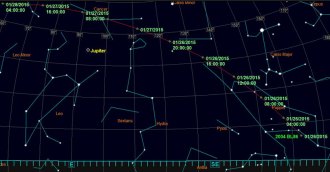 Planetary Science
Planetary ScienceLarge asteroid buzzes Earth
Asteroid 2004 BL86 swings by Earth today at three times the distance to the moon, the closest asteroid encounter until 2027.
-
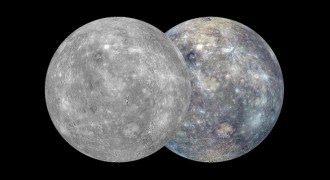 Planetary Science
Planetary ScienceDecades-old idea brought to fruition: a mission to Mercury
In 1965, engineers proposed sending a spacecraft to Mercury with help from another planet’s gravity – a technique now used in many interplanetary missions.